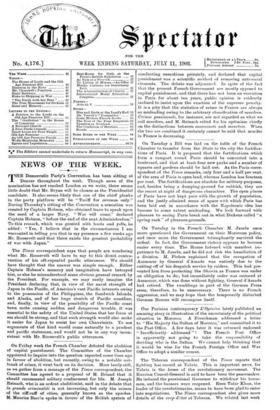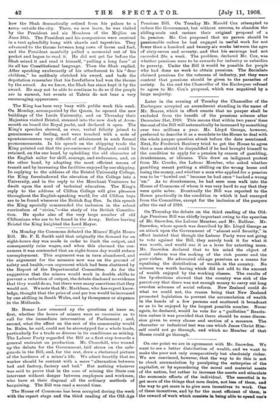The Teheran correspondent of the Times reports that fighting has
ceased at Tabriz. This is important news, for Tabriz is the home of the revolutionary movement. The Russian Consul-General is said to have been the peacemaker. He induced the provisional Governor to withdraw his horse- men, and the bazaars were reopened. Even Tatar Khan, the leader of the revolutionaries, seems to have been glad to enter into negotiations. The Times correspondent also gives more details of the coup tr etal at Teheran. We related last week
how the Shah dramatically retired from his palace to a earn p outside the city. There, we now learn, he was visited by the President and six Members of the Mejliss on June 16th. The President and his companions were received in a tent splendidly bung with shawls and tapestries. They advanced to the throne between long rows of horse and foot, and the President manfully pulled a memorial out of his pocket and began to read it. He did not get far before the Shah seized it and read it himself, "pulling a long face" at its all too Constitutional language. Then the Shah replied. After speaking exuberantly of his attachment to his "dear children," he suddenly clutched his sword, and bade the deputation remember that his forefathers had won the throne by the sword. As we know, the Shah has since kept it by the sword. He may not be able to continue to do so if the people are in earnest, but events at Tabriz do not bear a very encouraging appearance.







































